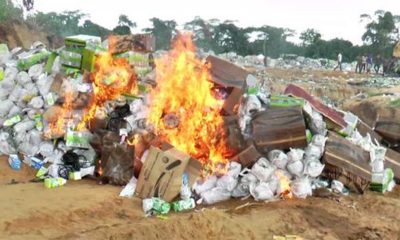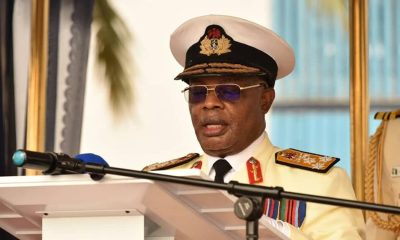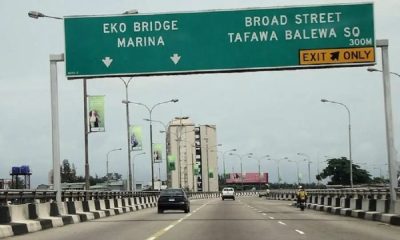Business
FG service domestic debt with N5.24tn in 30 months

Nigeria’s domestic debt service rose to N5.24 trillion in 30 months, data on the Debt Management Office (DMO) website has revealed.
The domestic debt was put at N20.95 trillion as of June 2022.
The latest report by the DMO revealed that domestic debt service in the first quarter of 2022 was at N664.73 billion, representing 0.6 per cent decline from N668.69 billion in the second quarter of 2022.
This implies that the Federal Government has serviced domestic debt with N1.33 trillion in the first half of 2022, a 43 per cent Year-on-Year (YoY) increase from N935.46 billion reported in first half of 2021.
Further breakdown revealed that the government domestic debt service was at N2.05 trillion in 2021, a 10.8 per cent increase from N1.85 trillion in 2020.
Following massive budget deficit, the FG of recent has borrowed aggressively through treasury bills, bonds, savings bonds and Sukuk to support infrastructure development across the country.
Experts have raised concerns as the government continues to obtain new loans from both local and external sources, despite growing debt profile and servicing cost.
The International Monetary Fund (IMF) has predicted that Nigeria’s debt service-to-revenue ratio would jump to 92 per cent in 2022 from 76 per cent in 2021.
Speaking with THISDAY, the CEO, Wyoming Capital & Partners, Mr Tajudeen Olayinka stated that the debt servicing by the federal government over the years has encouraged investors to provide additional support to the government with respect to further investment in government securities.
According to him, “It presents government in good light, with the opportunity to fund developmental projects across the country.
“The negative aspect of debt servicing in Nigeria is the sustainability problem that has now greeted the current administration of President Muhammadu Buhari, whereby, more than 100per cent of revenue is now being expended on debt servicing, giving room for possible default and failure of government in no distant future, especially with respect to foreign debt component.
“The fact that government spends its entire revenue to service debts, despite introducing new taxes and raising rates in some others, is an indication that economic agents are not generating enough outputs, sufficient to put Nigeria’s economy in the positive territory. It is actually a sign of declining output. It is simply a failure of fiscal policy.”
He hinted that the only way to cut the debt service figure down is for government to shift away from its current public sector dominance, and allow private sector businesses to occupy the driver’s seat, so as to consistently put the economy in the positive territory.
“Government should begin to consider removing subsidies in phases, in a manner that will not add more to the hardship on the ground. It also presents an opportunity to allow the economy to run a normal course of adjustment,” he added.
The CEO, Centre for the Promotion of Private Enterprise (CPPE), Dr Muda Yusuf commenting on raising debt profile noted that, “When we take account of borrowings from the CBN and the stock of AMCON debt, the debt profile would be in excess of N60 trillion.
“Although government tends to argue that the conditions was not a debt problem, but a revenue challenge. But debt becomes a problem if the revenue base is not strong enough to service the debt sustainably. It invariably becomes a debt problem and possibly a debt crisis. Government actual revenue can hardly cover the debt service obligations.
“Which implies that the entire capital budget and the recurrent expenditure may have to be funded from borrowing. This is surely not sustainable. The finance minister reported recently that in the first four months of this year, debt service to revenue ratio was over 100per cent.”
According to him, “What is needed is the political will to cut expenditure and undertake reforms that could scale down the size of government, reduce governance cost and ease the fiscal burden on the government.
“It is imperative for the country to operate as a true federation which it claims to be. The unitary character of the country is making it difficult to unlock the economic potentials of the sub nationals. It is perpetuating the culture of dependence on the federal government.
It is necessary to scale down the size of government and cost of governance. Fiscal sustainability is driven by both cost and revenue. Therefore, managing the major drivers of cost and revenue is imperative.
“As far as possible, the government should push back in sectors or activity areas where the private sector has the capacity to deliver desired outcomes. We should see more privatization at all levels of government.
“This would allow for the infusion of more private capital into the infrastructure space. We need to address the fuel subsidy conundrum at some point as it clearly not sustainable.”
– Thisday
Aviation
Aviation workers threaten nationwide airports shutdown over Customs officer assault

Aviation workers threaten nationwide airports shutdown over Customs officer assault
Aviation unions have announced plans to shut down airports across Nigeria starting March 31 in protest against the failure to remove a customs officer who allegedly assaulted the Director of Aviation Security at the Federal Airports Authority of Nigeria (FAAN).
In a joint statement signed by Ocheme Aba (NUATE), Frances Akinjole (ATSSSAN), and Abdul Rasaq Saidu (ANAP), the unions condemned the repeated physical assaults on FAAN staff, vowing not to tolerate such incidents any longer.
The unions also called on the government to urgently reduce the number of customs officers operating within the aviation sector, aligning with global best practices. They warned that if their demands are not met, they will proceed with the nationwide shutdown, potentially disrupting air travel and operations.
The statement reads: “Considering the enormity and frequency of physical and psychological assault on the staff and management personnel of FAAN, of which there is no end in sight, we are compelled to inform the management of the unwavering determination of our unions to cause the establishment of a clear framework of mutual respect among FAAN staff and the security agencies operating at the airports.
READ ALSO:
- Over 100 suspects arrested in Abuja Ponzi Scheme Academy raid
- Again Obasanjo accuses federal lawmakers of bribery
- FG to pay corps members backlog of delayed N77,000 allowance
“Consequential sanctions are in place which guarantee the safety and human rights of FAAN staff. We shall direct all the workers to withdraw from the airports with effect from March 31, 2025, pending when such protocols are established.
“The recent assault on no less a personality than the Director of Aviation Security of FAAN is one too many, which leaves a taste too bitter to swallow. It is our sincere hope that our demand in the above respect is well met to avoid the industrial conflagration that will ensue in the absence of acceptable remedial actions.”
In response, Abdullahi Maiwada, the spokesperson for Customs, stated in a recent release that the disagreement between FAAN officials and officers of the Nigeria Customs Service (NCS) stemmed from a miscommunication over equipment movement and seating arrangements.
Aviation workers threaten nationwide airports shutdown over Customs officer assault
Business
SEC announces stricter measures to protect investors
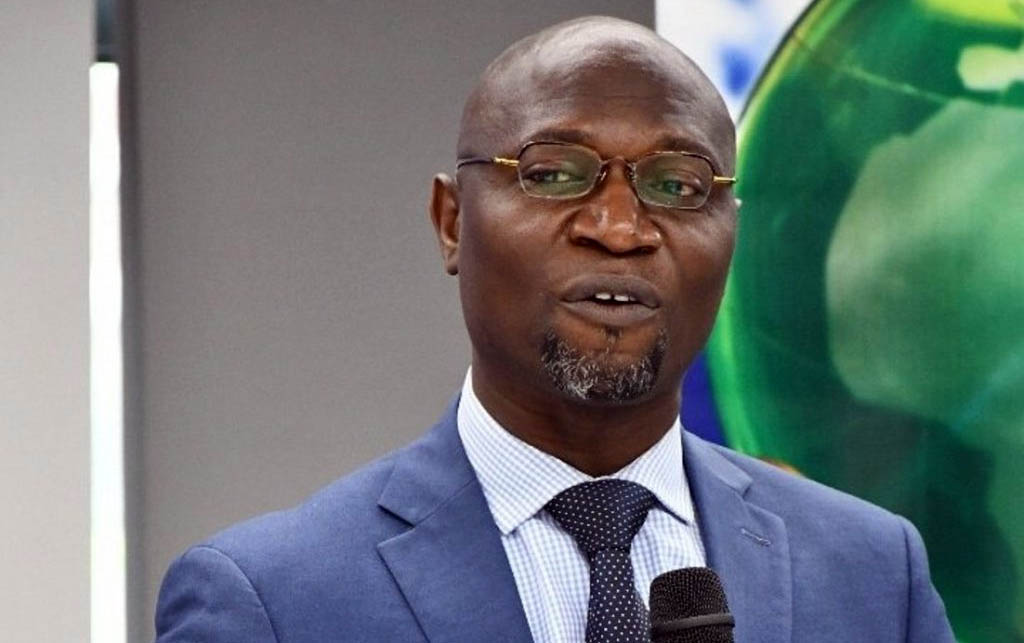
SEC announces stricter measures to protect investors
The Securities and Exchange Commission (SEC) has reaffirmed its commitment to protecting investors in Nigeria’s capital market by cracking down on fraudulent activities.
According to the Director-General of SEC, Dr. Emomotimi Agama, operators engaging in unscrupulous practices will face strict penalties as the Commission prioritizes safeguarding investor interests.
“So, clearly for us, it is getting people to understand that there is no hiding place anymore for anybody that has the intention to defraud Nigerians and to defraud anybody that is investing in this market,” Dr. Agama stated, emphasizing the Commission’s zero-tolerance policy.
READ ALSO:
- Why postgraduate students are ineligible for FG loan – NELFUND
- Bitcoin rises above $86,000 as crypto market gains momentum
- 2 Nigerians in US face heavy jail term over fraud
Dr. Agama highlighted that the Investments and Securities Act (ISA) 2007 serves as the framework for securities regulation in Nigeria, ensuring that market operators adhere to high ethical standards.
He emphasized the importance of the “fit and proper person’s test,” which requires operators to meet specific regulatory criteria to maintain their licenses.
“This is because the very ethics of regulating or registering a securities market operator is in the principle of the fit and proper person’s test,” he explained.
“What you have been seeing most recently by the revocation of licenses, the suspension of operators and our follow-up to operators that are not registered with the SEC is only a tip of the iceberg as to what we intend to do this year.”
Dr. Agama assured stakeholders that the SEC will leverage its regulatory powers under Nigerian law to deter fraudulent activities, noting, “We believe strongly that a protected investor is a powerful investor.”
SEC announces stricter measures to protect investors
Business
Bitcoin rises above $86,000 as crypto market gains momentum

Bitcoin rises above $86,000 as crypto market gains momentum
Bitcoin and other leading cryptocurrencies extended their gains on Monday, buoyed by positive investor sentiment despite concerns over upcoming U.S. tariffs and key economic data releases later this week.
As of 7am WAT, Bitcoin rose 3.2% to $86,590, while Ethereum gained 2.3%, trading at $2,047.
The global cryptocurrency market capitalization increased by 2.94% in the past 24 hours, reaching $2.84 trillion.
Other notable performers included XRP, Cardano, and Dogecoin, which posted gains of 3%, 2%, and 3.8%, respectively. Chainlink, Avalanche, Hedera, and Stellar recorded growth ranging from 3% to 10%.
“Bitcoin is holding above $86,000, registering a 3% gain today. The key resistance level to watch is $86,700; a breakout could pave the way for $90,000,” said Vikram Subburaj, CEO of Giottus.
Bitcoin’s market capitalization surged to $1.727 trillion, with dominance rising to 60.73%. Its 24-hour trading volume soared by 93% to $18.2 billion, while stablecoin transactions accounted for 94.74% of total crypto trading, reaching $57.58 billion, according to CoinMarketCap.
READ ALSO:
- 2 Nigerians in US face heavy jail term over fraud
- Canada denies 13,000 Nigerians refugee status
- Lagos Govt to redesign Oshodi motor park for rail integration
Solana Outperforms Peers Amid Positive Market Sentiment
Solana (SOL) emerged as a standout performer, surging over 7% in the past 24 hours to trade above $139.
The rally was fueled by reports suggesting that President Trump’s April 2 tariffs may be more targeted than initially feared, easing market concerns.
Weekend rumors indicated that the tariffs might include country exemptions and non-cumulative charges on metals, contributing to improved sentiment across global markets.
The Federal Reserve’s projections for two rate cuts this year further supported risk assets, with the central bank describing potential tariff-induced inflation as “transitory.”
BitMEX co-founder Arthur Hayes expressed optimism about Bitcoin’s trajectory, stating, “The Fed’s policy orientation could help Bitcoin achieve $110k before it retests $76.5k.”
Solana’s momentum aligns with unprecedented acceptance rates. DeFiLlama reported that Solana’s total value locked (TVL) reached 54.87 million SOL, its highest level since June 2022. Ali Charts revealed that a record 11.09 million addresses now hold SOL, underscoring growing adoption.
Bitcoin rises above $86,000 as crypto market gains momentum
-

 metro1 day ago
metro1 day agoCourt refers Ojukwu property case to alternative dispute resolution
-

 Entertainment2 days ago
Entertainment2 days agoSome ladies in movie industry ready to sleep their way to fame — Jide Kosoko
-

 metro2 days ago
metro2 days agoPresidency blasts Jonathan, Soyinka over comments on emergency rule in Rivers
-
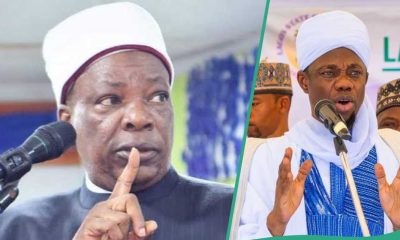
 metro7 hours ago
metro7 hours agoAttack on Mufty of Ilorin: Onikijipa Family Charges Stakeholders to Call Sheikh Habibullahi Al-Ilory to Order
-
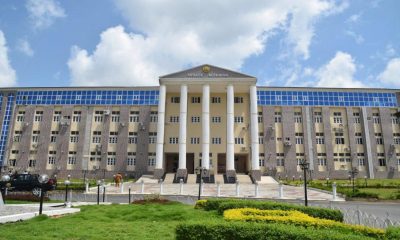
 metro2 days ago
metro2 days agoAdeleke University didn’t suspend Muslims for praying – MSSN
-
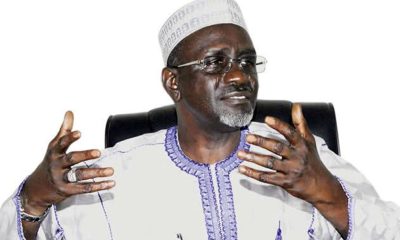
 Politics3 days ago
Politics3 days agoAtiku, Obi, El-Rufai’s coalition can’t unseat Tinubu – Shekarau
-

 metro3 days ago
metro3 days agoDisregard court order against Rivers Administrator, says Fubara’s aide
-

 Politics3 days ago
Politics3 days agoPDP gives condition to back Atiku, Obi, El-Rufai in 2027

